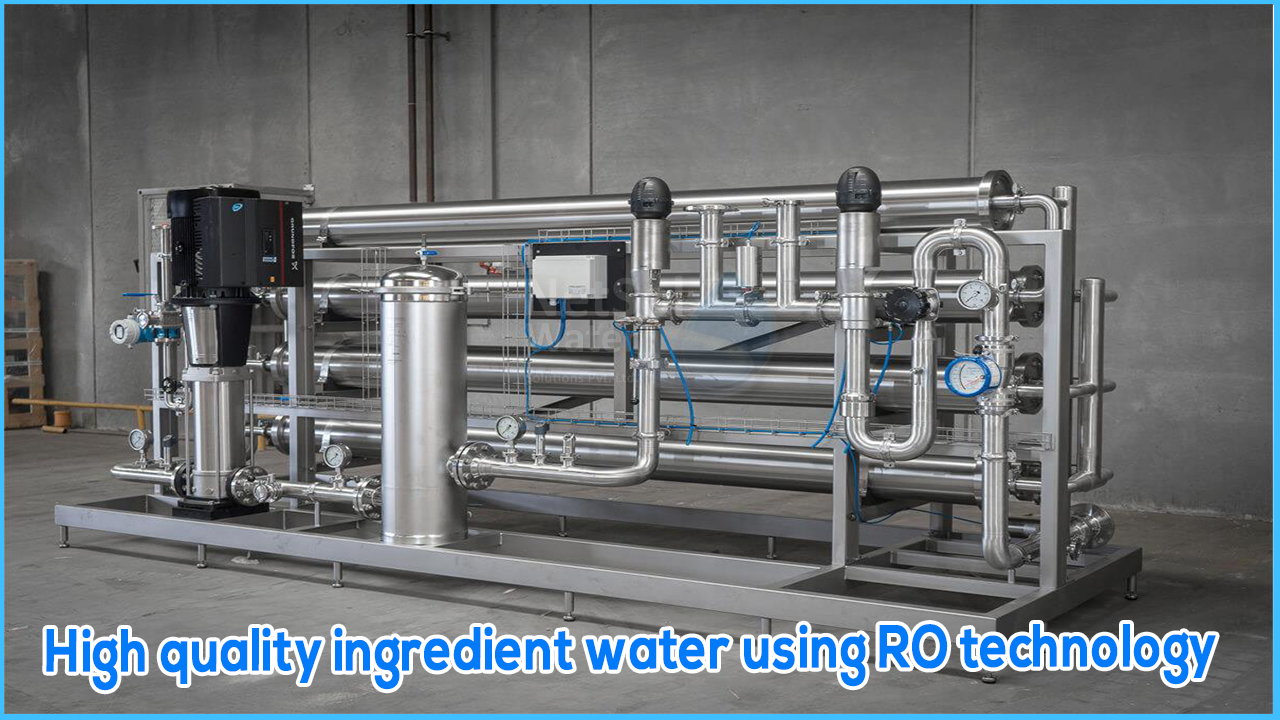High quality ingredient water using RO technology
The quality of the water is of great importance when it is used as an ingredient to maintain the quality of the product. Why is it that at some place you like a certain tea amazing but at another place, the same tea, with same leaves and process of cooking tastes different? It has everything to do with water and its quality.The food and beverage industry requires water as an ingredient in many applications where it must be free of undesirable flavours, odours, colours and impurities that could be harmful to consumers so a reverse osmosis system that produces water for baby food and soft drinks.
Even high-quality drinking water can cause problems if the water is used directly in products. Water used as an ingredient in foods, beverages, cosmetics, and pharmaceuticals must be free of undesirable flavours, odours, colours, and impurities.Each food industry water treatment solution should be tailored to the application to achieve the desired ingredient water quality. A company must have a permeate line design and certified components to ensure consistency of water quality and adherence to EHEDG principles for hygienic design to optimize microbial control throughout the treatment process. The food and beverage industry requires water as an ingredient in many applications where it must be free of undesirable flavours, odours, colours and impurities that could be harmful to consumers.
The device tubes are made of stainless steel, with a variable speed pump, integrated with automatic control valves, adapted to the automation functions that ensure stable operation and autonomous reverse osmosis. Let us understand this with the help of examples, as follows –
Water: Main component of beverages
Water, hops, barley and/or wheat and yeast are main components of beer. But why does Heineken always test Heineken? A person asks. "Heineken knows Heineken because it was made in the same place in the Netherlands for centuries," Another person responds. And that means consistent ingredients, especially water. Macro and microbreweries are popping up everywhere these days, and while their brew masters know the intricacies of recipes, they often don't understand the meaning of water. Brewers know they need to control their highly concentrated wastewater but mastering the complexities of ingredient water often eludes them.
Brewing is challenging for a number of reasons, and water quality shouldn't be any of them.Most breweries that are aware of water quality use the model to purify their water - everything is removed (but not distilled) and placed in the elements or minerals that complement a particular beer recipe. However, it is unlikely that a reputable brewer would call their local water softener company. An experienced water company knows how to handle water as an ingredient and make it perfect for your application, be it beer, soda, or anything else, and can help a processor recycle the water before it leaves the tank factory. But a full-service water company can also help the manufacturer control its wastewater so that the wastewater leaving the factory is what the POTW expects, and that keeps costs under control.




